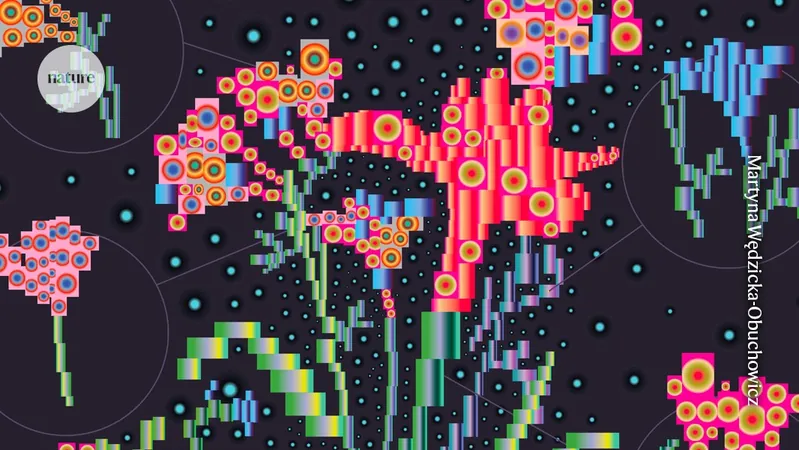
Is AI Plagiarizing Research? The Debate Over Generated Manuscripts
2025-08-20
Author: Wei Ling
AI and the Rise of Research Automation
In a groundbreaking incident this January, Byeongjun Park, an AI researcher, received an unexpected email alerting him that an AI-generated manuscript had utilized methods from his own work without proper credit. The manuscript, crafted using a tool called The AI Scientist, was part of a wave of automated research emerging from Sakana AI in Tokyo.
The AI Scientist: Innovation or Imitation?
The AI Scientist represents a new frontier in research automation, deploying a large language model to autonomously generate ideas, write code, and formulate findings into a cohesive research paper, clearly labeled as AI-generated. Park, associated with Korea Advanced Institute of Science and Technology, noted that while the manuscript didn’t copy his work verbatim, its core methodology was alarmingly similar, igniting concerns about originality.
A Growing Concern for Researchers
The issue escalated when Tarun Gupta and Danish Pruthi, computer scientists from the Indian Institute of Science, revealed multiple examples of AI-generated manuscripts that they claimed appropriated ideas without citation. Their research highlighted a disturbing trend where AI tools might be inadvertently plagiarizing, presenting previously established concepts as novel.
The Rationale Behind the Concern
Despite winning accolades at a prestigious conference, Gupta and Pruthi's findings have sparked controversy. Critics from the AI Scientist team argued against claims of plagiarism, asserting their manuscripts presented different hypotheses applied in varying contexts.
A New Form of Plagiarism: Idea Appropriation?
The crux of the debate centers on 'idea plagiarism,' a concept gaining traction among scholars. Debora Weber-Wulff, a plagiarism researcher, emphasized that although it remains difficult to substantiate with AI materials, the phenomenon is pervasive and likely to worsen as AI integration in research expands.
Testing the Boundaries of Novelty
Gupta and Pruthi performed a series of assessments, comparing AI-generated proposals with established literature. Alarmingly, 24% of the AI manuscripts showed a high degree of overlap with existing research, raising questions about accountability and credit in academic publishing.
A Divided Academic Community
As AI continues to evolve, the academic sector struggles with the ethics of AI-generated content. While some researchers argue that AI creations fall short of academic standards, others believe that unintentional overlaps should not be labeled as plagiarism.
Navigating the Gray Area of Plagiarism
Defining plagiarism becomes increasingly complex with AI involvement. While some experts insist intentionality must be a factor, others like Weber-Wulff argue that the absence of clear attribution by the AI is a definitive issue that needs addressing.
Conclusion: The Future of AI in Research
As the line blurs between AI-generated work and traditional research methodology, academia faces immense challenges. The rise of AI in scholarly publishing necessitates a reevaluation of what constitutes originality and ethical conduct in research, steering us into uncharted waters for the future of scientific discovery.



 Brasil (PT)
Brasil (PT)
 Canada (EN)
Canada (EN)
 Chile (ES)
Chile (ES)
 Česko (CS)
Česko (CS)
 대한민국 (KO)
대한민국 (KO)
 España (ES)
España (ES)
 France (FR)
France (FR)
 Hong Kong (EN)
Hong Kong (EN)
 Italia (IT)
Italia (IT)
 日本 (JA)
日本 (JA)
 Magyarország (HU)
Magyarország (HU)
 Norge (NO)
Norge (NO)
 Polska (PL)
Polska (PL)
 Schweiz (DE)
Schweiz (DE)
 Singapore (EN)
Singapore (EN)
 Sverige (SV)
Sverige (SV)
 Suomi (FI)
Suomi (FI)
 Türkiye (TR)
Türkiye (TR)
 الإمارات العربية المتحدة (AR)
الإمارات العربية المتحدة (AR)